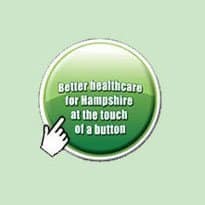Incomplete data hits Hants record use
- 22 November 2013

Leading users of the Hampshire Health Record have expressed frustration with the growing problem of incomplete data on thousands of patients, caused by GPs switching to TPP’s SystmOne.
Data is incomplete because SystmOne does not currently provide daily extracts to the record, but TPP says it is working on a solution.
Established in 2005, the HHR is one of the best-known shared record projects in the country. It receives data feeds from GP practices, acute and community trusts, using the Graphnet CareCentric portal.
Now run by NHS South Commissioning Support Unit, it covers 1.9m patients and is available to view by anyone involved in a patient’s care.
About 80% of Hampshire GPs have agreed to supply their patients’ data to the shared record, but only 70% are currently uploading.
The disparity has occurred because a number of practices have signed data sharing agreements for the record, but are using TPP’s clinical system. This does not integrate with the Graphnet portal or provide a daily data feed to the record.
TPP has gained increasing market share in Hampshire over recent years, where about 14% of the county’s 209 GPs are using SystmOne. This has been driven by practices in Southampton, where more than 60% of GPs have switched to the system over the past three years.
Dr Derek Waller, the deputy medical director of University Hospital Southampton NHS Foundation Trust, said it has very high use of the shared record because it is integrated into the trust’s own electronic patient record.
“I use it on the wards and in outpatient clinics, you can get hold of very useful things like current treatments,” he said.
“The frustration for us is that we have patchy access to data, as the record often stops from when practices started moving to TPP in 2009. Progressively, as practices change over, we find that we have very incomplete data.”
This is potentially damaging to the information sharing scheme, because if clinicians go to find information and discover it is not available, they are less likely to use the system again, Dr Waller added.
A spokesperson for the HHR said: “we have been trying to get regular data out of TPP for a long time. We have been looking at any way that makes TPP practice data visible to other organisations.”
A spokesperson for TPP said it is working with NHS Southampton CCG as a “priority customer” on providing the data it requires for the HHR.
The company provides a monthly data extract. However, this is not uploaded to the shared record because the information, such as current medications, is potentially out of date and therefore clinically unsafe.
“Daily data extracts from SystmOne are currently being tested with a community trust. Once this testing process is complete, TPP will be making them available for all our customers who have requested them,” the spokesperson explained.
The HHR spokesperson said: “This is their solution to the information sharing problem and I think it’s a reasonable one. I will be very pleased if we get this.”
IT lead for NHS Southampton CCG, Dr Mark Kelsey, doubts that all practices in the area will move on to one system, so interoperability will remain key to sharing information in the county.
“It’s potentially going to be a huge issue because we are looking at how we can improve integration,” he said.
Dr Kelsey is hopeful that the new GP Systems of Choice contract, which is due by next March and will require the major GP system suppliers to open their interfaces to other suppliers, will help to resolve the problem.
Another option is using the Medical Interoperability Gateway from Healthcare Gateway, which has a five-year contract to integrate with TPP. However, this is still in pilot phase.
Chief clinical information officer for the HHR, Dr Amir Mehrkar, said it is essential to find solutions to build confidence in sharing projects: “Care professionals are naturally frustrated when they are blind to information about their patients,” he said.
“They use these systems to get intelligence to know how to treat their patients better and that saves them time searching for information and ordering other tests.”




